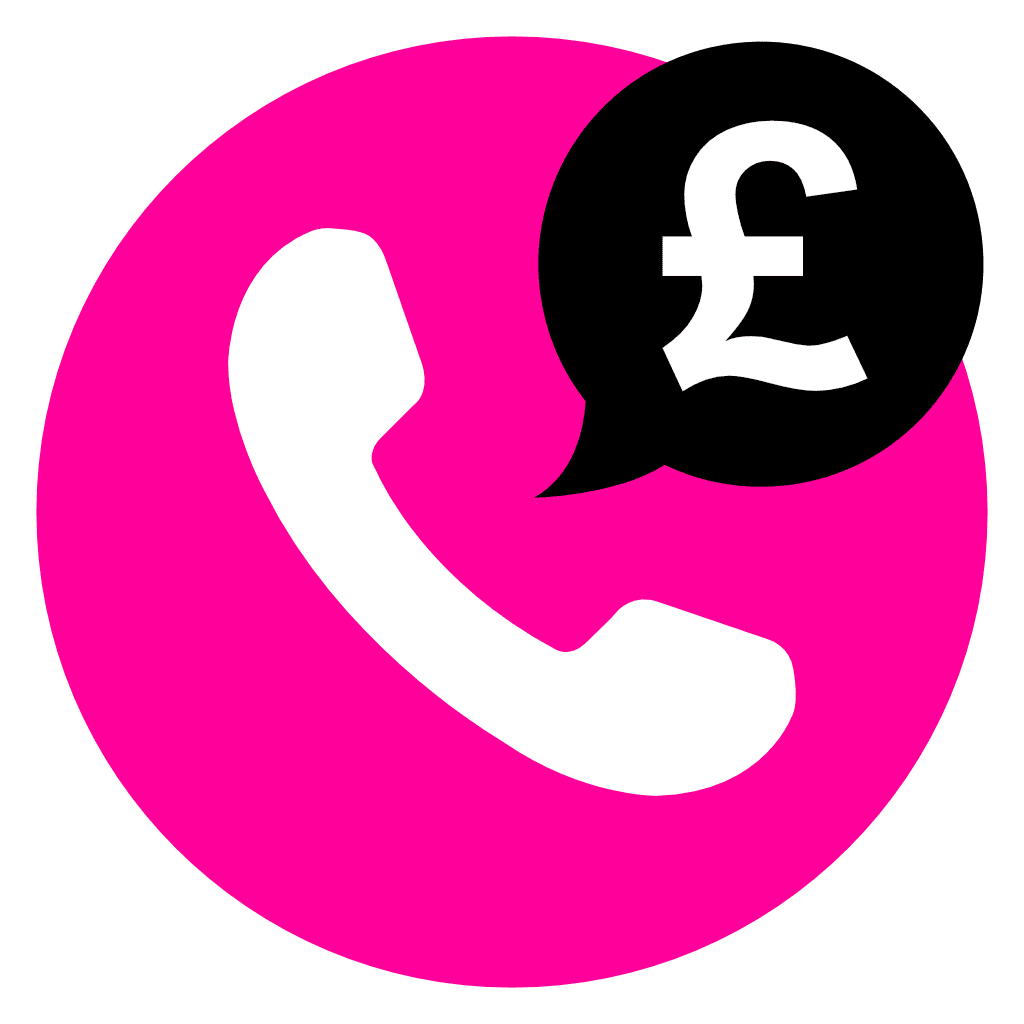Choosing the right VoIP provider is a critical decision for any UK business looking to enhance communication, streamline processes, and manage costs. Sipgate and Vonage both offer distinct packages that appeal to businesses of varying sizes, but each has unique features, benefits, and pricing structures. This analysis breaks down the offerings from Sipgate vs Vonage, helping you decide which provider best aligns with your business needs.
Overview of Sipgate vs Vonage
Sipgate is known for its flexibility, offering both individual VoIP solutions and comprehensive business plans. With a strong focus on customisation, Sipgate appeals to businesses that want a tailored solution for calls, messaging, and conferencing without a one-size-fits-all approach.
Vonage, on the other hand, is a globally recognised name in VoIP services, offering solutions designed for seamless integration with other business tools. Known for its user-friendly platforms and reliable support, Vonage caters to businesses looking for comprehensive VoIP solutions with enhanced features such as CRM integration and robust customer support.
| Feature | Sipgate | Vonage |
|---|---|---|
| Call quality and reliability | High call quality, dependent on local network stability | High call quality with robust data centre support for improved reliability and continuity |
| Integration capabilities | Basic integrations with CRM and productivity tools; open API for custom integrations | Extensive integrations with major CRM systems (Salesforce, Zoho, Microsoft Teams) |
| Call management features | Basic call forwarding, voicemail-to-email, call queues, conferencing, UK-specific numbers | Advanced call routing, call analytics, AI transcriptions, and customer data integration |
| Scalability | Flexible, month-to-month plans, ideal for businesses with varying needs | Flexible plans but with minimum contract terms, suitable for businesses with growth focus |
| International calling | Low-cost international calls with options for local numbers in multiple countries | Competitive international rates with broad local and international number availability |
| Mobile and desktop apps | Offers mobile app; desktop access may require additional setup | Mobile and desktop apps available on all plans, integrated for seamless use |
| Video conferencing | Limited to basic conferencing options | Included in higher-tier plans, integrated with VoIP and suitable for client meetings |
| Analytics and reporting | Basic usage reporting available | Advanced analytics and call data insights on premium plans |
| Support availability | Limited support, largely online resources | 24/7 customer support available on higher-tier plans, including priority support |
| Contract requirements | No contract required; pay-as-you-go and monthly options | Generally requires a minimum contract period (e.g., 12 months) |
| Starting price | Basic pay-as-you-go; Team plan at £9.95 per user/month | Mobile plan starts at £10 per user/month |
| Mid-tier plan | N/A | Premium plan at approximately £15 per user/month |
| High-tier plan | N/A | Advanced plan at £20+ per user/month with comprehensive features |
| Best suited for | Small to mid-sized businesses prioritising flexibility and essential VoIP services | Growing businesses needing advanced features, integrations, and reliable customer support |
Feature comparison
When choosing between Sipgate vs Vonage, understanding the specific features each service offers can make the decision clearer. Both providers excel in various areas, making it essential to align your business’s unique communication needs with their features.
1. VoIP call quality and reliability
- Sipgate: Utilises a secure and stable infrastructure to deliver high call quality, though the service may depend on local network stability.
- Vonage: Also offers high-quality VoIP calls with reliability supported by robust data centres, offering options for call continuity even in case of power or internet outages.
2. Integrations and compatibility
- Sipgate: While not as integration-heavy as Vonage, Sipgate supports essential connections with CRM and other business software, and the open API allows businesses to build custom integrations.
- Vonage: Known for its extensive integrations, Vonage seamlessly connects with popular CRM systems like Salesforce, Zoho, and Microsoft Teams, which is a major advantage for companies already using these platforms.
3. Call management features
- Sipgate: Offers essential features such as call forwarding, voicemail-to-email, call queues, and conferencing. Sipgate also has flexible phone number porting and additional UK-specific number options.
- Vonage: Goes a step further, offering advanced call management options like call analytics, AI-powered call transcriptions, and automatic call routing based on customer data. These features make Vonage suitable for businesses with high call volumes or those prioritising data-driven customer interactions.
4. Scalability and flexibility
- Sipgate: With no lengthy contracts, Sipgate offers flexibility, making it suitable for smaller businesses or those needing to scale up and down quickly.
- Vonage: Provides flexible, scalable plans but usually with a minimum contract period, making it better suited for businesses looking for long-term growth and stability.
5. International calling and number availability
- Sipgate: Offers low-cost international calls with options to add numbers from various countries, ideal for businesses with an international presence or client base.
- Vonage: Known for its global reach, Vonage offers highly competitive rates on international calls and a wider range of local and international number options, appealing to businesses with overseas clients.
Cost comparison – Sipgate vs Vonage
Pricing is another crucial factor, and both Sipgate and Vonage provide different models to fit varied budgets.
1. Sipgate pricing
- Basic plan: Sipgate offers a pay-as-you-go option with no monthly fees, which is ideal for small businesses with lower call volumes.
- Team plan: Starting at approximately £9.95 per user/month, this plan includes essential business features and options for call handling, voicemail, and basic conferencing.
- Flexibility: One of Sipgate’s strengths is its lack of lengthy contracts, allowing businesses to use the service on a month-to-month basis and adjust usage according to their needs.
2. Vonage pricing
- Mobile plan: Starting at around £10 per user/month, this plan provides mobile and desktop app access, call forwarding, and basic integrations.
- Premium plan: Approximately £15 per user/month, this plan includes more advanced features, including CRM integrations and video conferencing, making it suitable for mid-sized businesses.
- Advanced plan: At £20+ per user/month, this plan is ideal for larger businesses needing a more comprehensive solution with advanced call routing, analytics, and priority support.
Pros and cons summary
To help you make a balanced decision, here’s a snapshot of the main advantages and drawbacks of each provider.
| Feature | Sipgate | Vonage |
|---|---|---|
| Pros | – Flexible pricing with no contract requirements – Pay-as-you-go options for low usage | – Extensive integrations with CRM and productivity tools – Global call options and support |
| Cons | – Limited integration options – Fewer advanced call analytics | – Minimum contract periods – Slightly higher base cost for comprehensive features |
Which provider should your business choose?
Choosing between Sipgate vs Vonage depends largely on your business’s priorities:
- Sipgate: Ideal for smaller businesses or those needing flexible, no-commitment plans with essential call features. If your business values cost-efficiency, flexibility, and has a lighter demand for CRM integration, Sipgate may be the better fit.
- Vonage: Suited for businesses that prioritise robust integrations, especially with CRM and other tools, as well as advanced call management features. Vonage’s structured plans and contract-based model may be more appropriate for businesses aiming for growth and reliability with enhanced call and customer interaction features.
Final thoughts – Sipgate vs Vonage
In conclusion, both Sipgate and Vonage offer viable VoIP solutions for UK businesses, with Sipgate catering to those needing flexibility and Vonage to those seeking advanced features and integration capabilities.
Evaluate your budget, call volume, integration needs, and scalability goals before making your decision.
Whichever you choose, both platforms are well-positioned to support your business communications and contribute to more efficient operations.
FAQ
Sipgate offers essential VoIP features with a flexible, pay-as-you-go model, appealing to businesses with simpler needs. Vonage provides more advanced options, including CRM integrations and analytics, making it ideal for companies seeking enhanced customer interaction capabilities.
Sipgate does not require contracts, allowing month-to-month flexibility. Vonage typically operates with a minimum contract period, usually 12 months, which can be better for businesses seeking consistent, long-term service.
Vonage has extensive CRM integrations, supporting Salesforce, Zoho, and Microsoft Teams, providing a comprehensive solution for businesses relying on CRM systems. Sipgate offers basic integrations and a customisable API but lacks the built-in options of Vonage.
Both providers maintain high call quality, though Sipgate’s performance can depend on local network conditions. Vonage benefits from robust data centres, enhancing call reliability and continuity, especially helpful for high-volume users.
Sipgate offers budget-friendly pay-as-you-go options and a lower-cost Team plan. Vonage’s pricing starts a bit higher but includes more features, particularly on premium plans, suitable for businesses needing advanced functions.
Yes, both support international calling. Sipgate provides low-cost rates with additional international numbers available. Vonage offers competitive international rates and a broad selection of local and international numbers.
Sipgate is highly flexible with no long-term commitments, suitable for businesses needing to scale quickly. Vonage’s plans support growth well but usually require contract terms, ideal for businesses planning steady growth.
Vonage provides integrated mobile and desktop apps across all plans. Sipgate offers a mobile app, though desktop access may need extra configuration, making Vonage the more accessible option for cross-device use.
Sipgate provides basics like call forwarding, voicemail-to-email, and call queues. Vonage goes further with advanced call routing, AI-driven transcriptions, and data-based customer interaction options, better suited for client-facing roles.
Sipgate primarily offers online resources with limited support, suitable for self-sufficient businesses. Vonage provides 24/7 support on higher-tier plans, including priority assistance, ideal for companies needing more immediate help.

